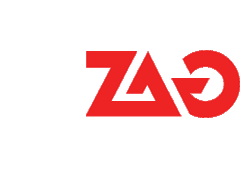
How CFOs Can Improve Profitability with ERP Software
How can CFOs increase productivity, strengthen client relationships, and, ultimately, boost their bottom line? What can CFOs do to generate more revenue and steady profit margins? These questions doubtless run through the minds of CFOs who are driven to succeed—especially in the ever-changing creative industries.
CFOs are constantly in search of ways to increase revenue and profitability. The ad agency world has introduced the added pressure of a business landscape based increasingly on shorter-term engagements over the Agency-Of-Record (AOR) relationships that had previously dominated the business. In fact, Forbes recently dubbed this trend The Agility Era, a phrase that refers to the upsurge in a preference for flexibility and streamlined production overstable and unshakable client relationships. What, then, does this mean for profitability?
Thankfully, there are specific tools to help CFOs succeed in today’s fast-paced and multifaceted agency environment. The most important of these tools is perhaps Enterprise Resource Planning (ERP) software. Choosing an effective ERP system can be one of the most important decisions a CFO can make today. Benefits include the ability to integrate information and communication across the areas of business management, customer relationship management (CRM), human resources, distribution, and sales. Broadly speaking, it is difficult to see how improvements in these areas would not lead to increased profit margins.
It’s critical, though, to identify and keep in mind the areas in which an effective ERP solution can create the most profit impact. This article discusses ways that CFOs can use an ERP system to maximize profitability, especially as related to creative projects. Specifically, CFOs can utilize ERP software to increase employee productivity, better manage scheduling, tighten communication, and automate various tasks that would otherwise consume valuable work hours. Taken together, these functions—along with the many other benefits of an effective ERP solution—will greatly enhance profit margins for CFOs working in the advertising industry and beyond.
A key insight for executives and management alike is that in order to make money, you have to know how much you’re spending. But where is this data, and how can agencies better integrate it into project operations? One highly valuable feature of an effective ERP solution is the ability to coordinate between project management functions like deliverable tracking and accounting data such as work hours and project actuals (or actuals-to-date). As a project is underway, a CFO—often working alongside a project manager—can obtain direct insight into the timeline of a project against a projected final profitability figure.[1] This projected profitability number, alongside project burndown, allows a CFO to “see into the future” and create realistic projections based on current live data.
In addition to data visibility, communication is perhaps one of the most important areas linked to profitability. Every ad agency knows that every project’s success is a direct result of clear and effective communication. With an effective ERP, project managers and CFOs can obtain up-to-date information in a specific area while cross-referencing such data in another department. For example, a project manager can match internal resources according to project needs and convey such needs to executives. Similarly, a CFO can determine which accounts should be given more resources and which should be reduced. Such measures have strong implications for profitability, given the link between internal costs and a company’s bottom line.
Another way that an effective ERP system can help CFOs maximize profits is through efficient scheduling. We should all be aware of the perils of unnecessary meetings—a practice that costs upwards of an estimated $37 billion per year.[2] In addition to superfluous meetings, though, scheduling can present problems that often require problem solving across disparate domains of business. For instance, how can a team coordinate between employees in different timezones alongside external contractors? Or, how can project managers respect the much-needed “heads down” time demanded by creatives while also including them in critical team meetings? These are challenges that an effective ERP system can address head-on. By cross-referencing multiple areas of operation, ERPs help make scheduling, even in complicated scenarios, a breeze—ultimately making projects all the more profitable.
Automation is another way businesses increase profits. Indeed, the reduction of work hours is a recurring theme for executives and managers everywhere who strive to increase profit margins. Automation crystallizes this theme. Here ERP can give it substance. Through business automation tools, ERP software can reduce work time by automating manual tasks that eat up precious internal costs. Such features may come pre-installed or can be configured as add-on features of an ERP system.[3] In either case, using an ERP to automate costly manual processes is an effective way to increase a project’s profitability.
We’ve seen, then, how CFOs can use ERP software to increase profitability across a range of business activities. Boosting employee productivity through project tracking, better managing scheduling, improving communication, and automating manual tasks are a few of the many areas that an effective ERP system addresses. Taken together, these improvements can directly impact your business’s bottom line.
Are you planning to get ERP system for your agency? Get Free Assessment report before you Implement one
